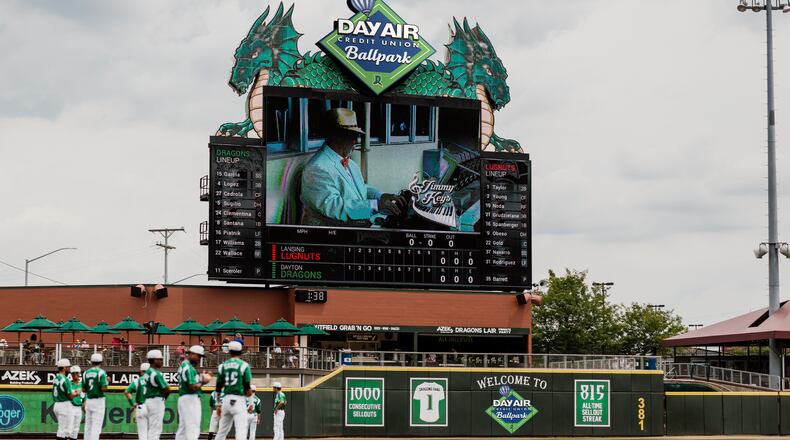The Dayton Daily News recently spoke with leaders who have a finger on the pulse of the economy. What they see is not necessarily cause for short-term optimism, although long-term, they believe a bumpy recovery will be achieved.
Credit: EASTERLING STUDIOS
Credit: EASTERLING STUDIOS
“I would think when all is said and done, we’re going to have much greater unemployment and greater pain than 10 years ago with the Great Recession,” Bill Burke, president and chief executive of Day Air Credit Union, said in an interview Friday.
“I can easily tell you that this crisis blows away the Great Recession from a decade ago,” said Natalie Dunlevey, owner and president of National Processing Solutions, an Oakwood-based credit and debit card transactions processor. “The response from my clients and from friends I know who own businesses spans the gamut.”
RELATED: 26 million Americans have lost jobs in the past five weeks
The numbers Dunlevey sees tell at least part of the tale: So far, the credit card authorization numbers she sees are down about 20 percent from where they should be year-over-year, due primarily to retail and restaurants, some of which have been deemed “non-essential.” Restaurants have seen on-site dining prohibited, cutting into their financial foundation.
“Some have grabbed this crisis by the throat and have come out swinging,” Dunlevey said. “They pivoted their business operations in real time, came up with incredibly innovative marketing and are grinding through.”
She added: “Some may still not survive; however, it won’t be from lack of effort.”
RELATED: Honda won't resume auto production before May 8
Burke leads Day Air, which this year bought the naming rights to the downtown ballpark home of the Dayton Dragons. With the Dragons’ season and indeed all professional sports cancelled or postponed, a full return on that investment has been delayed.
“This government shutdown has really slowed the velocity of money,” Burke said. “That’s what’s hurting the economy.”
Velocity of money is important, he said. People get paid, and they tend to “start transacting,” he said.
And much of that transacting has been frozen for the time being. Money is being deposited into bank and credit union accounts — people are receiving stimulus payments — but “the funds are just staying there,” Burke said.
RELATED: Wright State administrators take pay cut
He believes the recovery will be slower than many would like. “It’s not going to be a ‘V’-shaped recovery where it rockets back up as fast as it came back down.”
Dayton attorney Nadia Lampton focuses on labor and employment law, working with management at manufacturing and other companies. The Taft Law attorney said her clients are eager to return either to full reopening or full-fledged production.
But she sees a number of potentially complicating factors on the horizon.
One possible issue is compensation for unemployed workers. The CARES Act passed by federal lawmakers in response to the health crisis adds $600 a week to state unemployment benefits from April through July.
RELATED: What's the biggest thing businesses need right now to survive? Cash
This could create a disincentive for some workers in some sectors — including manufacturing — to return to their former jobs quickly, Lampton said.
“If they (employers) have a furloughed or laid-off workforce, recalling them is difficult when employees come to their employers and say, ‘No, I don’t feel safe coming back. I’m just going to stay on unemployment,’” she said.
“One of the motivating factors is they make more money with unemployment benefits. That’s an issue employers are already facing. Many of my clients are already dealing with that, and I think they’ll continue to deal with that,” Lampton added.
Dunlevey said she can feel a “pent-up” urge among entrepreneurs to open their businesses.
“It’s like a racehorse biting at its bit, they just want to open it again,” she said.
“We should be as loyal as possible to small businesses, local businesses, because these are our friends and neighbors who are really hurting,” Burke said.
Credit: Submitted
Credit: Submitted
Marty Grunder, owner of Grunder Landscaping in Miamisburg, has been operating at about half-capacity since early April. He’s ready to return to full capacity once the state unveils its recovery plan. He’s getting plenty of calls from his customers.
“Everybody’s ready for a recovery,” he said.
He agrees that this economic crisis is probably worse than the last recession, but he sees some key differences.
The Great Recession was “systemic,” stemming from a failure in banking and financial institutions, he said.
But he thinks many businesses are poised for growth once they get the regulatory go-ahead to resume business.
“This one, I think, short-term is worse,” Grunder said. “Long-term, I think the other one (the earlier recession) was worse.”
The fundamentals behind what was once a “roaring economy” are still there, Dunlevey said.
“You can’t keep a Daytonian down,” she said. “They’re going to figure out a way to be successful.”
About the Author





